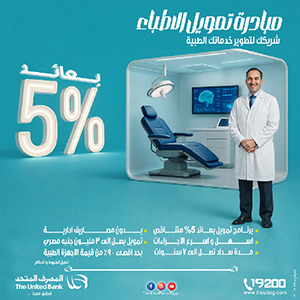Hisham Ezz Al-Arab: Monetary policy stability in Egypt ends the “era of surprises” … and CIB prepares to launch an independent digital bank


Hisham Ezz Al-Arab, Chief Executive Officer of the Commercial International Bank – Egypt (CIB), stated that the period from 2015 to the end of 2022 witnessed what he described as “intense volatility”, noting that this phase was marked by frequent surprises in monetary policy and exchange rate management.
In an interview with Al Arabiya Business on the sidelines of the IMF Annual Meetings, Ezz Al-Arab explained that excessive surprises in monetary policy are considered unhealthy from an economic standpoint, as they lead institutions to adopt overly cautious hedging strategies without a clear understanding of the underlying risks. This, in turn, reduces the accuracy of financial models and makes them excessively conservative.
He added that this situation persisted until recently, but a noticeable stabilization in monetary policy has now been observed. He emphasized that the current Central Bank of Egypt has succeeded in establishing the perception that its decisions are now more predictable, which he described as a highly positive development.
Ezz Al-Arab noted that this transformation has had a direct impact on the local market, as the “risk premium” that traders used to add to prices in anticipation of sudden fluctuations has now disappeared. He explained that, in the past, if a product cost EGP 100, it would be sold for EGP 140 due to uncertainty. Today, that premium has vanished in sectors such as automotive and poultry, as market confidence in the Central Bank’s risk management has strengthened.
Regarding loan loss provisions, Ezz Al-Arab revealed that CIB achieved a non-performing loan (NPL) coverage ratio of 340% by the end of last year — a figure he described as exceptionally high compared to the regional banking average of 90%–130%. He acknowledged that such a high level of provisioning had raised investor questions about whether the bank was concealing any risks. However, after discussions with the Central Bank and external auditors, it was confirmed that CIB had merely adopted a highly conservative stance — a policy that enabled it to navigate periods of uncertainty successfully.
He added that with financial conditions now stabilizing, the bank no longer requires the same level of precaution. CIB has received approval from the Central Bank and its auditors for a new financial model that allows the reallocation of excess provisions to the profit and loss account, while transferring them to a special reserve for two years to ensure the model’s effectiveness.
In a related development, Ezz Al-Arab announced that CIB is in the advanced stages of launching an independent digital bank, noting that the bank has completed its operational model and conducted the necessary technological testing. He revealed that CIB plans to formally apply for a digital banking license early next year.
He added that the bank has been working on this project for over a year and has made significant investments in technological infrastructure, which will help accelerate the licensing process. Ezz Al-Arab stressed that the shift toward digital banking must be carefully planned, emphasizing that a digital bank should not replicate the same services or target the same customer segments as a traditional bank. Instead, he argued, the most effective approach is to invest in technology within the existing bank to minimize the need for physical branch visits, except in exceptional cases.
Ezz Al-Arab concluded by affirming that monetary policy stability in Egypt represents a turning point in attracting investment and improving the business environment. He stressed that clarity and predictability in economic decision-making enhance market confidence and help redefine the risk landscape for both financial institutions and investors.






















